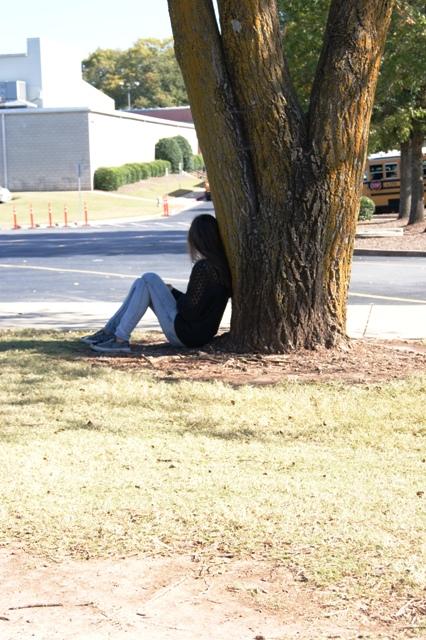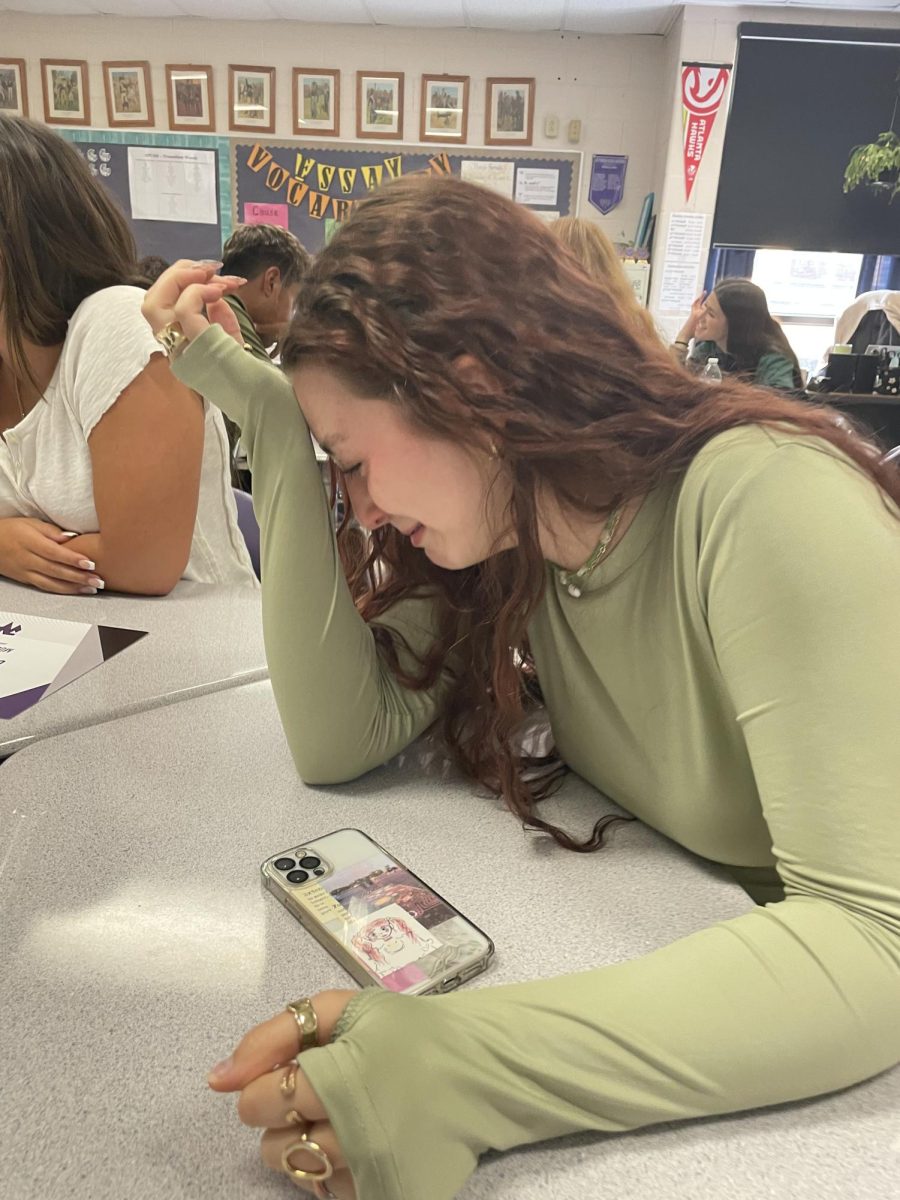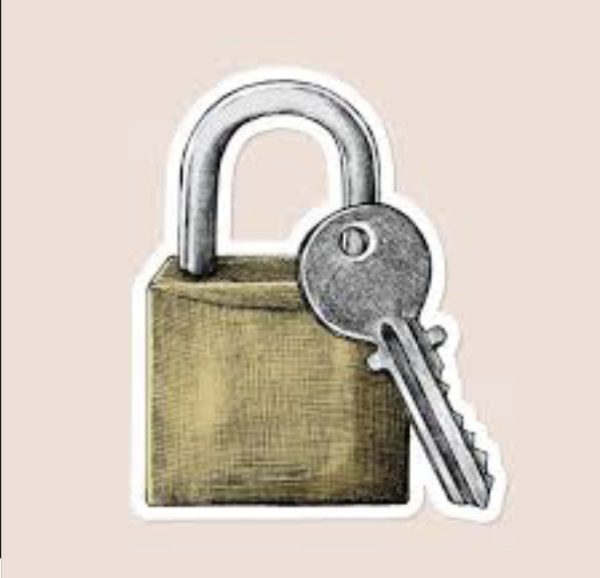Penelope
October 27, 2014
Her name was Penelope.
She was beautiful, really. Every time she asked me how she looked, I said so, but she still never believed me. Her curly, messy brown hair was always down to her shoulders, no further. And though it seemed she was never pleased with it, I always told her otherwise. Her cat-like eyes were always thickly outlined with eyeliner, and the deep hazel coloring of her irises never failed to catch me when I stared into them. Her thinly shaped face added to her cat like resemblance, a petite nose and pair of lips. Her bangs always seemed to be resting over her right eye, and every time we saw each other I would brush them behind her ear so that I could see her face. She was thin, no more than one hundred and ten pounds. Her posture was always slumpish, so I would tease her and tell her to stand up straight. She was short. Short enough for me to rest my chin on the top of her head, which I did often.
Some of my fondest memories were with Penelope.
We’d be together all the time, meeting up at each other’s houses, bingeing on Netflix, and telling dumb jokes that never failed to cause us both to laugh hysterically for hours on end. Her laugh, unlike her elegant demeanor, was unlike the laugh of any girl’s I’d heard before, far off from the typical giggle. It was bombastic and filled with life, and it was the last thing you would expect to come out of someone her size. Some people found it obnoxious, but I found it charming.
But not all of my memories with Penelope were happy.
She was one day diagnosed with the worst disease known to humankind; Depression. She saw a psychiatrist every week and was prescribed a medication to help her through her struggles. Neither helped. She began to accumulate deep cut wounds running up her forearms like ladder handles, and she would always wear long sleeve shirts or sweaters to cover them, even in the summer. It hurt me so much to see her in this pain. But I would not abandon her like so many others had. She would tell me every time something happened. I would get calls from her late at night, and when I picked up, she would be crying. I could visualize the tears making her eyeliner run down her face that I adored so much in my head as we talked. I couldn’t stand to let her be alone in a situation like that. I would drive to her house, with only the intent of embracing her, of telling her that I was there for her; that everything would be okay. She would bury her face in my chest and wrap her bleeding arms around me and I would hold her tightly. I would eventually start to cry with her. I would have blood stains on my shirts afterwards, but I didn’t care. We would stand on her front porch like that for hours, locked in embrace, silently sobbing.
I was her only comfort, and I did everything in my power to help her.
Penelope’s parents were financially unstable and unwilling to comfort her. They believed that she was the source of their debt, so they took it out on her. She was a broken toy, a tattered soul. I couldn’t go a day without hugging her or kissing the top of her head. I just couldn’t. Neither could she. She needed me, and I began to need her. Seeing her in such a state of utter sadness was the worst pain I could suffer. Worse than the burning of a hundred hot irons, worse than being jabbed by a thousand knives, worse than the pain of any physical or emotional injury. We were so close to each other that we could see into each other’s hearts and souls. The pain that she felt, I felt as well.
Years went by like this; her depression would continue to relapse over and over again. We both slowly began to wither and fade. I remember one night in specific. I stayed up late waiting for Penelope to call me. She never did. I made the biggest mistake of my life that night; I didn’t call her.
The next day at school, I learned that Penelope gave up and committed suicide.
I was crushed. The dearest, most important person in my life no longer lived.
It was my fault.
I could have saved her.
If only I had called her.
One of our mutual friends told me when it happened. It had happened the night before, the one night in the past three years she didn’t call me. I immediately left school that day, and went home to mourn. It felt as though her blood was on my hands.
I spoke at Penelope’s funeral, and broke into a sob at the podium.
Her entire being, everything I loved about her, was now gone. She didn’t think her life was worth living anymore. I tried to give her as many reasons I could for her to keep going, to keep trying. I failed her.
Her name was Penelope.
Penelope is dead.














